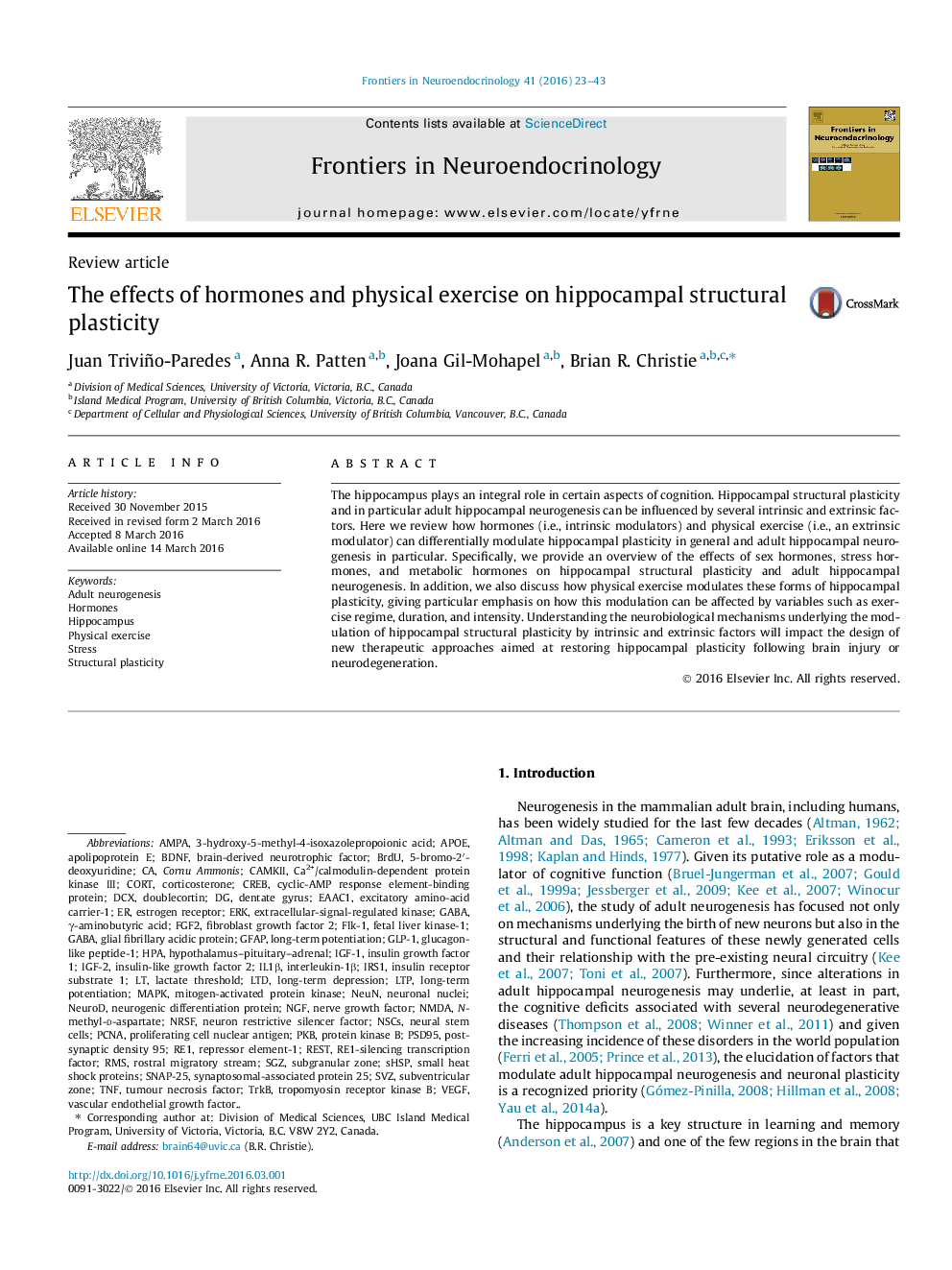| Article ID | Journal | Published Year | Pages | File Type |
|---|---|---|---|---|
| 2799280 | Frontiers in Neuroendocrinology | 2016 | 21 Pages |
•Hippocampal structural plasticity is modulated by intrinsic and extrinsic factors.•Sex, stress, and metabolic hormones regulate hippocampal neurogenesis and dendritic morphology.•Exercise modulates both proliferation and survival of hippocampal newborn cells.•Exercise effects on hippocampal plasticity are affected by exercise paradigm, duration, and intensity.
The hippocampus plays an integral role in certain aspects of cognition. Hippocampal structural plasticity and in particular adult hippocampal neurogenesis can be influenced by several intrinsic and extrinsic factors. Here we review how hormones (i.e., intrinsic modulators) and physical exercise (i.e., an extrinsic modulator) can differentially modulate hippocampal plasticity in general and adult hippocampal neurogenesis in particular. Specifically, we provide an overview of the effects of sex hormones, stress hormones, and metabolic hormones on hippocampal structural plasticity and adult hippocampal neurogenesis. In addition, we also discuss how physical exercise modulates these forms of hippocampal plasticity, giving particular emphasis on how this modulation can be affected by variables such as exercise regime, duration, and intensity. Understanding the neurobiological mechanisms underlying the modulation of hippocampal structural plasticity by intrinsic and extrinsic factors will impact the design of new therapeutic approaches aimed at restoring hippocampal plasticity following brain injury or neurodegeneration.
